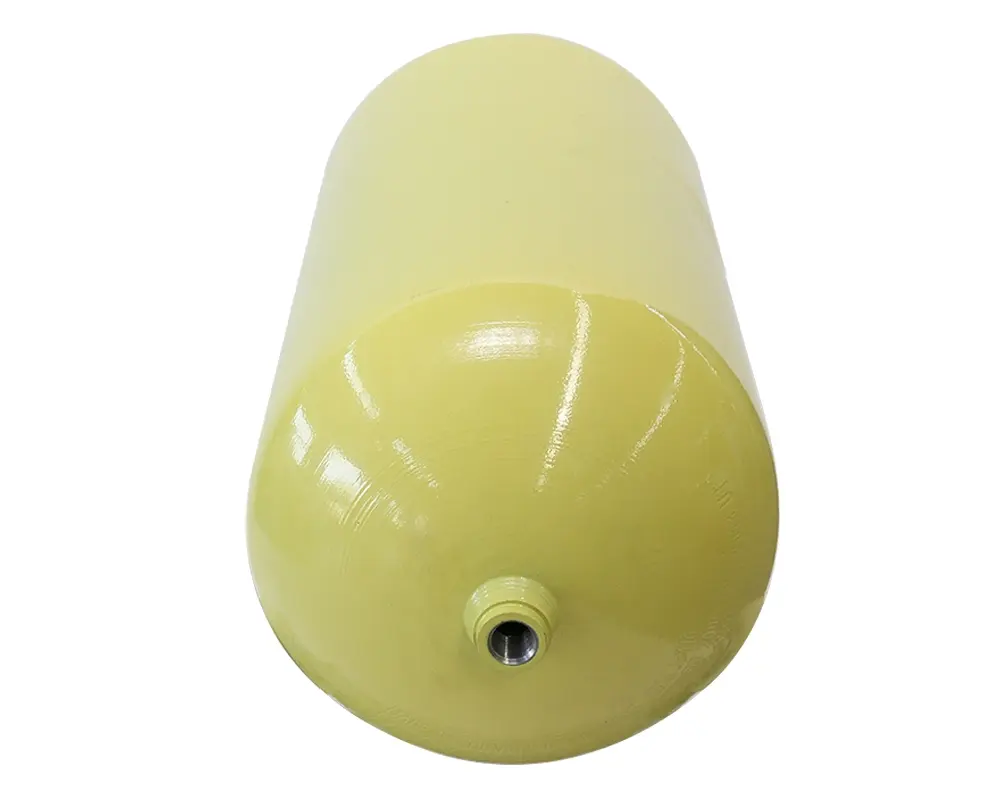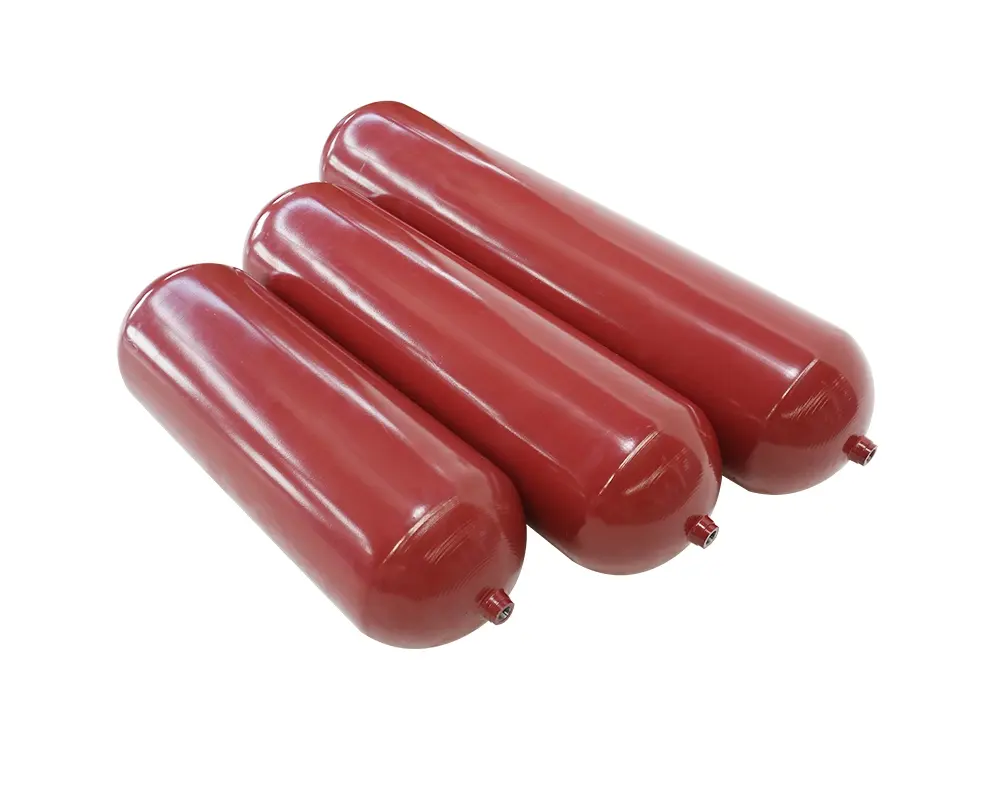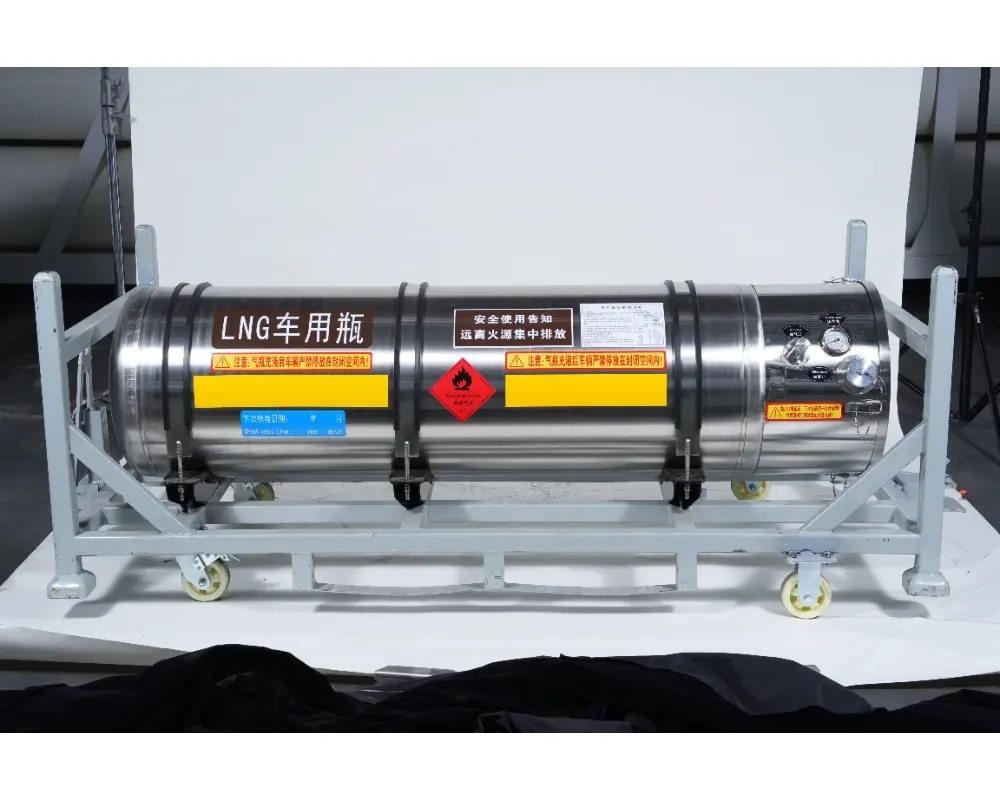All You Need to Know About CNG Gas Cylinders For Vehicles
Release time: 2025-09-12
With growing environmental awareness and changing energy demands, CNG (compressed natural gas) has become a key option in the modern automotive industry as a clean, economical alternative. As a key component for storing and transporting natural gas, the technical and safety performance of CNG cylinders is crucial. HSDP will provide an in-depth understanding of the basic concepts, operating principles, structural features, and safety precautions of CNG cylinders for vehicels, helping you better understand this important device.
Table of Contents
What are CNG Gas Cylinders For Vehicles?
CNG cylinders are containers for storing compressed natural gas (CNG). They are widely used in the fuel systems of CNG-powered vehicles, public transportation vehicles (such as CNG buses and CNG taxis), and commercial vehicles. Natural gas is compressed and stored in the cylinders and supplied to the engine through pipelines for combustion, replacing traditional gasoline and diesel, thereby achieving environmental and energy savings.

How CNG Cylinders Work
The primary function of automotive CNG cylinders is to safely and efficiently store and deliver natural gas. Natural gas has a large volume at room temperature and pressure, so it is compressed to a high pressure (typically 200-250 bar) to save space and facilitate storage and transportation.
Cylinder Filling: Natural gas is compressed and filled into CNG cylinders through high-pressure pipelines at filling stations.
Fuel Supply: When the vehicle engine is started, the natural gas in the cylinder enters the vehicle’s fuel system through a control valve and is supplied to the engine.
Combustion Process: After pressure regulation, the natural gas enters the engine’s combustion chamber, mixes with air, and burns to provide power.
Main Components of Automotive CNG Cylinders
- Cylinder Housing: The cylinder housing is made of high-pressure composite materials (such as carbon fiber and glass fiber) with extremely high compressive strength and corrosion resistance. The housing protects the cylinder interior from external environmental influences.
- Cylinder Valves and Connectors: The cylinder is equipped with specialized high-pressure valves and connectors for filling and deflating, as well as connecting to the vehicle’s fuel system. Valves are typically equipped with multiple safety devices, such as pressure relief valves and rupture discs, to prevent hazards caused by overpressure or other malfunctions.
- Cylinder Liner: Cylinder liners are typically made of high-temperature and corrosion-resistant materials to ensure safe storage of high-pressure natural gas.
- Pressure Sensor and Pressure Regulator: Some modern CNG cylinders are equipped with built-in pressure sensors to monitor the cylinder’s pressure in real time. When the pressure is too high or too low, the system automatically adjusts to ensure safe gas supply.
CNG Cylinders for Vehicles Advantages
Environmental Protection and Energy Saving
Natural gas is a clean energy source. Its combustion emissions of harmful substances such as carbon dioxide and nitrogen oxides are far lower than those of traditional fuels, effectively reducing air pollution. Vehicles using CNG cylinders significantly reduce carbon emissions compared to traditional gasoline and diesel vehicles, making it a key measure to combat climate change and reduce carbon footprints.
Economical and Efficient
CNG fuel costs are significantly lower than those of traditional gasoline and diesel. Especially during periods of volatile oil prices, CNG offers drivers a more stable and affordable fuel option, resulting in significant savings in operating costs over the long term.
Longer Service Life
Automotive CNG cylinders are typically made of high-strength composite materials, offering excellent pressure resistance and corrosion resistance. With regular inspection and maintenance, CNG cylinders can have a service life of 15 years or longer.
Reduced Noise Pollution
Natural gas burns more smoothly than gasoline and diesel, and produces less noise when the engine is running, helping to reduce traffic noise pollution.
Safe Use Precautions for CNG Cylinders
Although CNG cylinders are highly safe, natural gas is flammable and explosive, so the following points should still be observed during use:
1. Regular Cylinder Inspections
Vehicle owners should regularly inspect CNG cylinders and related accessories, such as valves and connectors, to ensure there are no leaks or damage. According to national or regional regulations, CNG cylinders must undergo a comprehensive inspection and have their inspection labels replaced every five years.
2. Select a qualified filling station for refueling
Ensure that you use a CNG filling station that meets national standards. During the filling process, avoid overpressure. Filling stations will usually automatically stop filling, but vehicle owners should still be aware of the filling volume and pressure.
3. Avoid cylinder collisions and high temperatures
CNG cylinders should be kept away from extreme environments such as high temperatures and high pressures. Especially in summer, avoid parking your vehicle in direct sunlight for extended periods to prevent the cylinder from overheating and potentially causing safety hazards.
4. Immediately discontinue use in the event of a malfunction
If any abnormality is detected in the cylinder or fuel system (such as odor, leaks, or pressure fluctuations), discontinue use immediately and contact a professional for inspection.
Conclusion
CNG cylinders for vehicles play a vital role in the energy transition of modern vehicles. It’s not only an efficient and environmentally friendly fuel storage and supply system, but also a crucial technology for promoting green transportation. Understanding the working principles, structural features, and safe handling precautions of CNG cylinders will not only help consumers make informed choices, but will also further promote the development of the automotive natural gas industry.
If you have further questions or needs regarding CNG cylinders for vehicles, please feel free to contact us. We will provide you with high-quality, reliable CNG cylinders and professional after-sales service to help you achieve green mobility!


